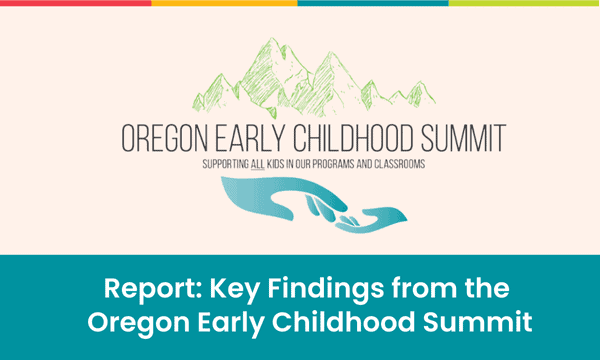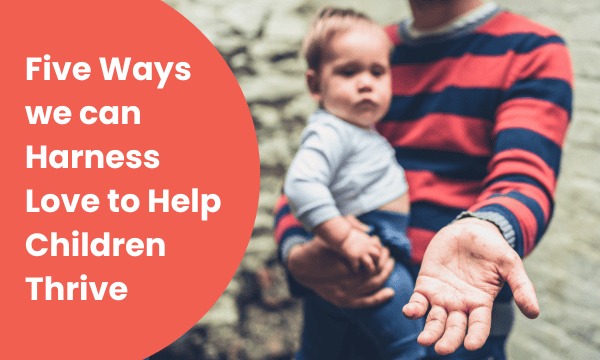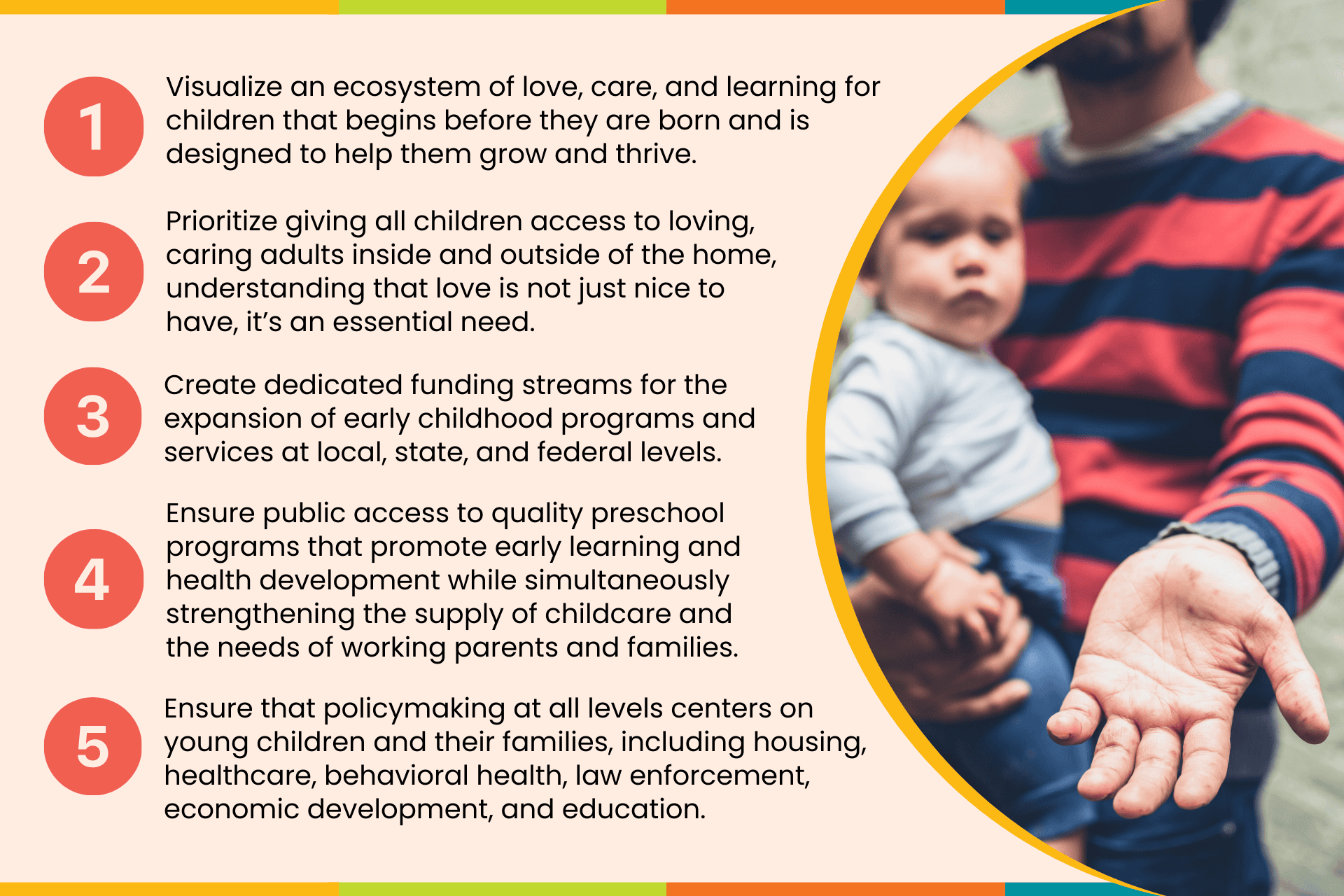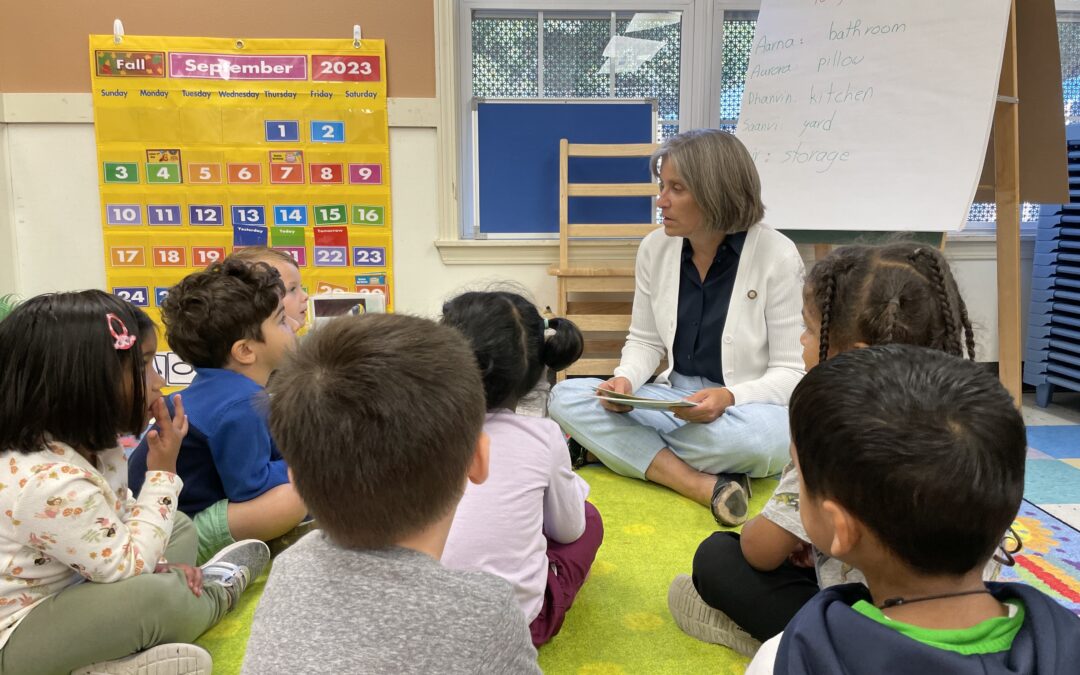
Senate Committee Offers Fresh Take on Early Childhood Health
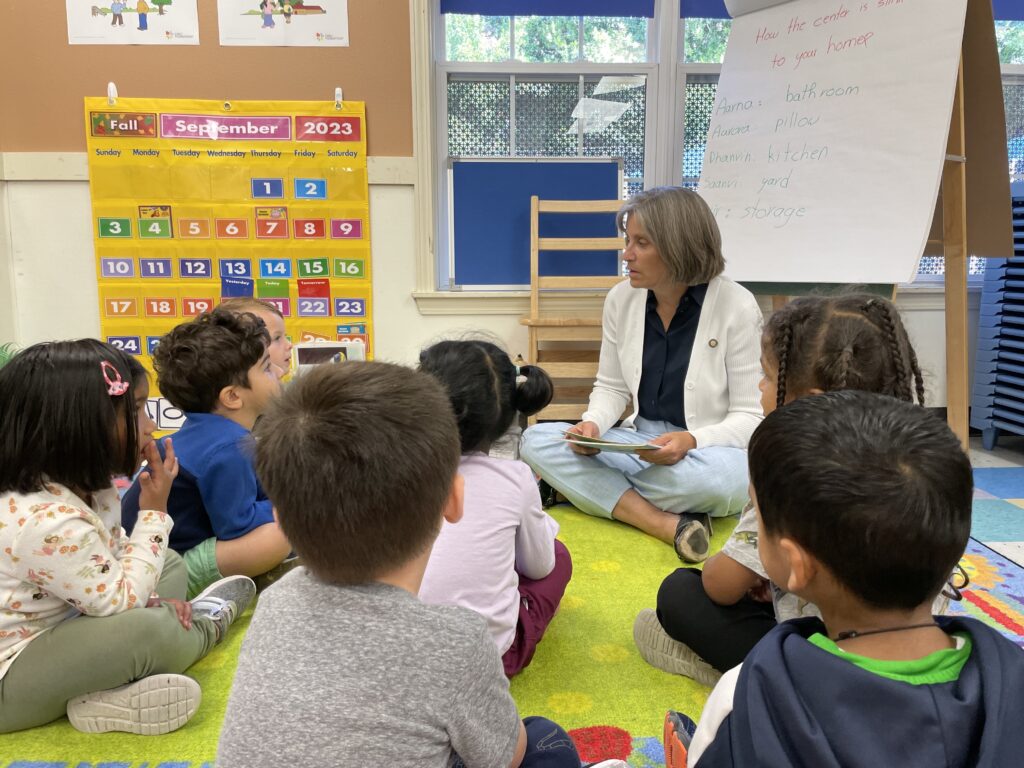
Sen. Lisa Reynolds will hold an informational hearing on a new Senate Committee on Jan. 21. Sen. Reynolds, who will Chair the Committee, is an advocate for early childhood, leading the Momnibus package that focuses on early childhood health and education for young children.
Children’s Institute (CI) is elated with the Oregon Legislature’s creation of a new Senate Committee on Early Childhood and Behavioral Health. The Committee not only aligns with CI’s support of early childhood education, it does so in an original way.
“We would have been thrilled simply to have a new panel of experts prioritizing early childhood because that is related to our mission and policy goals,” said Andi Walsh, Senior Health Policy Advisor for the Children’s Institute.
“However, seeing this new Committee established at the state level signals a shifting in priorities at the top level of our government. Our leaders are not only aware of the critical nature of high-quality health and education programs for young children, but they also realize that we need more policies to support and foster these programs.”
Plus, while many states, including California and Washington, have early childhood committees at the state level, this one is unusual because it encompasses a prevention lens for later-life issues, such as mental health.
“It is rare to see a focus on early years of life and behavioral health,” Walsh noted.
To explain the committee’s purpose and how behavioral health and early childhood are connected, Oregon State Senator Lisa Reynolds, MD (D-Portland), the Committee Chair, will be holding an informational hearing at 1 p.m. on Tuesday, Jan. 28 in Hearing Room E of the State Capitol (a livestreaming link will be posted soon on the Committee page). In fact, CI’s Director of Policy & Advocacy, Dana Hepper, will be presenting in support of the Committee.
“People’s stories and decades of research show that a child’s early experiences set the foundation for the rest of their lives,” Hepper said. “We are glad the Oregon Senate recognizes this connection and created a committee to take action.”
Meanwhile, the Committee will offer the perfect place for Sen. Reynolds’s Momnibus policies to thrive during the 2025 Legislative Session, which begins on Jan. 21. (The Momnibus is a policy package that focuses on health and housing support for mothers and children.)
The Committee came to life in a comparable way to the Momnibus. Sen. Reynolds, a pediatrician, applied her expert knowledge and a fresh perspective to early childhood issues. She believes in preventive measures for young children through early action and investment, especially surrounding issues of behavioral health. She saw an opportunity.
“There was a feeling that young kids are often overlooked in favor of other populations in the policymakers’ process when they’re lumped into a general ‘education’ or ‘human services’ or ‘healthcare’ committee,” Reynolds said. “There was a desire to pull them out and give them their own spotlight to ensure their needs were getting the attention they deserved.”
How to Attend the Hearing
- When: Tuesday, January 28 at 1:00 p.m.
- Where: Hearing Room E of the State Capitol, 900 Court St. NE, Salem, OR 97301
- Livestream Link Available Soon: See the Committee webpage
- Public Engagement: Welcome! Sen. Reynolds encourages the public to stop in, listen online, or submit written testimony.
Early Childhood and Behavioral Health Committee Schedule
- When: Every Tuesday and Thursday at 1:00 p.m.
- Where: Hearing Room E of the State Capitol
About Sen. Reynolds
Excerpt from State Legislature webpage: I am a pediatrician, a mom, and an activist. I grew up in the suburbs of Chicago with memories of metal roller skates that clamp onto your sneakers and midwestern weather (snow storms and tornadoes!).
We weren’t a family of means, but from a young age, my parents instilled in us the drive to give back to our communities.
My mom started college funds for me and my three siblings in the belief that our future held higher education. She herself returned to college and earned a degree at 45.
Connect with her on the Oregon State Legislature website.

